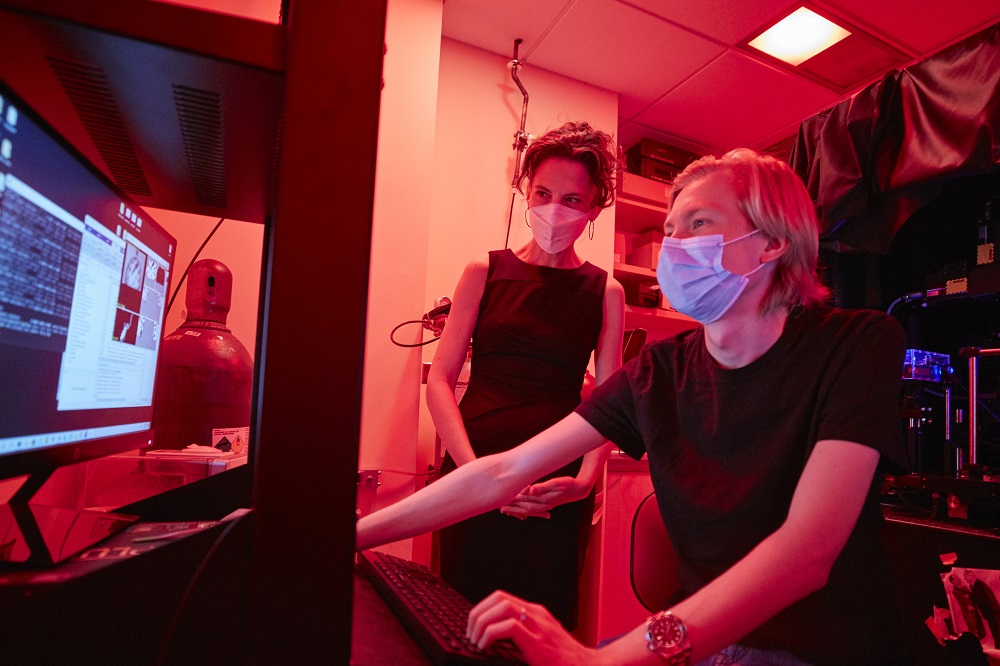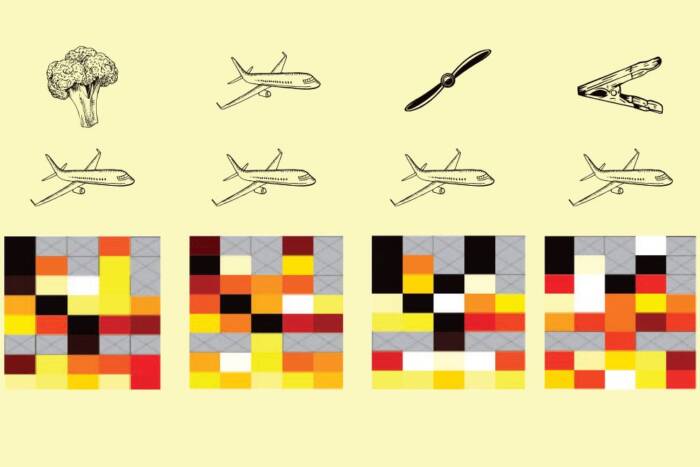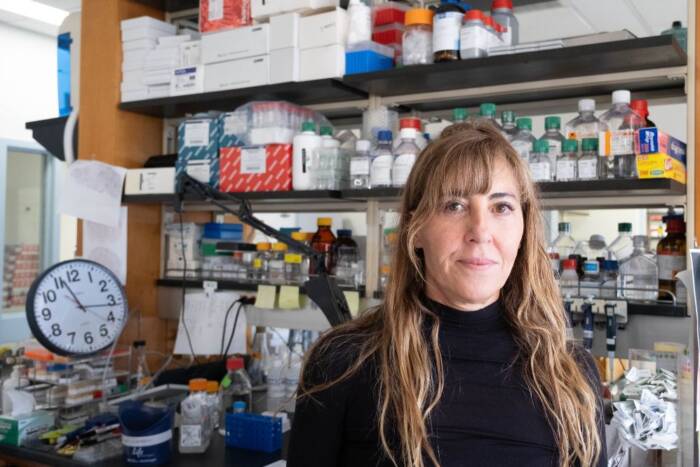A new interdisciplinary center, devoted to the neuroscience of social behavior, has been launched with a $25 million gift

Vanessa Ruta working with graduate student Tom Hindmarsh Sten in her lab. Ruta will co-direct the new center with colleague Winrich Freiwald.
Richard P. Lifton, president of The Rockefeller University, today announced a gift of $25 million from Michael and Vikki Price to establish the Price Family Center for the Social Brain, a groundbreaking interdisciplinary initiative that will expand the frontiers of neuroscience. The new center represents an ambitious collaborative effort to determine the neuronal, cellular, and molecular foundations of social behavior. The fulfillment of this mission will require, among many innovations, the development and implementation of powerful technologies to study neural activity in socially interacting animals, in real time.
An integral component of the new center’s activities will be to reach a better understanding of the human condition and to translate scientific discoveries into better diagnostics and novel therapeutics to treat conditions that adversely affect social cognition. With its focus on human outcomes, the Price Family Center fulfills a key promise of the university’s 2020–2024 strategic plan, which calls for investment in research that draws on basic science to inspire new strategies to combat disease.
Abnormalities in social interactions are characteristic of a wide range of neurodevelopmental and neuropsychiatric disorders, the causes of which are largely unknown. “Mental illnesses continue to take a tremendous toll on individuals and society,” says Michael Price, “yet there is still so much we don’t understand about the mind. Vikki and I are motivated to support the work of remarkable scientists whose collaboration could help improve our collective quality of life. Our goals for this center are to identify the causes of these disorders and find treatments or solutions.”
Michael Price has been a Rockefeller trustee since 2014 and has been involved with the university for more than twenty years. He is a member of the Executive Committee and chairs the Audit Committee of the board. Mr. Price recently retired from Evercore, a global investment advisory firm in New York City, and he has had a long and successful career in business.
“Virtually every psychiatric disorder, as cause or consequence, impairs social abilities,” says Winrich Freiwald, professor and head of the Laboratory of Neural Systems, who will serve as co-director of the Price Family Center. “By achieving a deeper understanding of how social information is processed in neurotypical brains, scientists will be better able to develop and test theories and approaches about how processing is altered in conditions like autism, depression, or schizophrenia.”
While treating such disorders and improving human lives are primary goals, scientists in the center are positioned to leverage a novel combination of social model organisms to determine the conserved and core features of the social brain. Research in these areas at Rockefeller has already provided critical insights into the neural mechanisms that underlie vocal learning, the reading of emotional cues, the effects of social isolation, and the evolution of social organization.
“We have a unique community of neuroscientists examining sociality across the animal kingdom,” says Vanessa Ruta, Rockefeller’s Gabrielle H. Reem and Herbert J. Kayden Associate Professor and head of the Laboratory of Neurophysiology and Behavior, who will also be a co-director of the center. “The Price Family Center helps to ensure that the solutions developed in one lab will directly support advances in others.”
The resources of the Price Family Center will support high-risk, high-reward research and facilitate access to advanced capabilities in behavioral analyses of the complex interchange between interacting animals, engineering, and computational neuroscience. The center will provide funding for graduate and postdoctoral fellowships as well as interdisciplinary retreats and seminars. An emphasis of these programs will be to enhance communication between Rockefeller neuroscientists and clinicians who work directly with patients, including psychologists and psychiatrists.
“Future progress in neuroscience depends on our ability to study the brain as an organ of social connection,” says President Lifton. “Michael and Vikki’s extraordinary vision and generous financial commitment will provide Rockefeller scientists remarkable opportunities to understand social interactions in simpler systems that will have profound implications for understanding and treating human diseases that impact social behavior in all its forms.”


